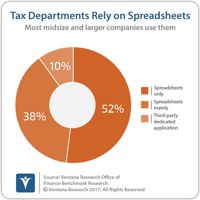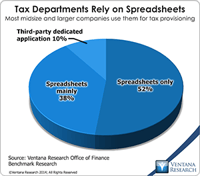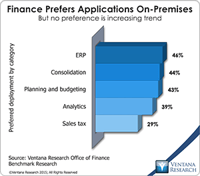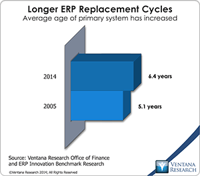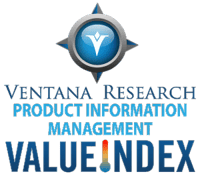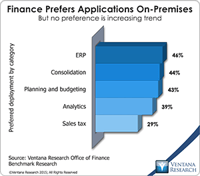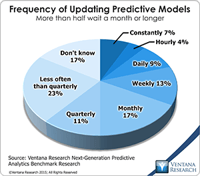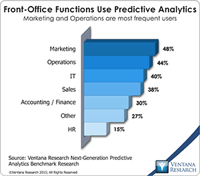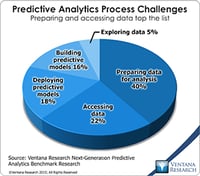The Oracle Analytics Summit 2019 was the inaugural user event for Oracle Analytics customers, and they also broadcast the video for thousands of others. You can watch the keynote at https://www.youtube.com/watch?v=eY0IPNqzsy4. Executives talked about some big organizational changes, including Bruno Aziza joining last year to lead the analytics organization. This event marked a transition and "a new beginning" for the Oracle Analytics portfolio, as the company announced three new analytics...
Read More
Topics:
Big Data,
Data Science,
Oracle Cloud,
Oracle
In 2013, the Organization for Economic Cooperation and Development (OECD) published a report titled “Action Plan on Base Erosion and Profit Shifting” (commonly referred to as “BEPS”), which describes the challenges national governments face in enforcing taxation in an increasingly global environment with a growing share of digital commerce. Country-by-country (CbC) Reporting has developed in response to the concerns raised in the report. To date, 65 countries (including all members of the...
Read More
Topics:
ERP,
GRC,
audit,
finance transformation,
LongView,
Tax,
Business Analytics,
Oracle,
CFO,
Vertex,
FPM,
BEPS,
tax department,
tax planning
The steady march of technology’s ability to handle ever more complicated tasks has been a constant since the beginning of the information age in the 1950s. Initially, computers in business were used to automate simple clerical functions, but as systems have become more capable, information technology has been able to substitute for increasingly higher levels of human skill and experience. A turning point of sorts was reached in the 1990s when ERP, business intelligence and business process...
Read More
Topics:
Sustainability,
ERP,
Governance,
GRC,
Human Capital,
Office of Finance,
audit,
finance transformation,
LongView,
Tax,
Analytics,
Business Analytics,
Business Performance,
Financial Performance,
Oracle,
CFO,
Risk & Compliance (GRC),
Vertex,
FPM,
Innovation Awards,
Thomson-Reuters multinational
Workday Financial Management (which belongs in the broader ERP software category) appears to be gaining traction in the market, having matured sufficiently to be attractive to a large audience of buyers. It was built from the ground up as a cloud application. While that gives it the advantage of a fresh approach to structuring its data and process models for the cloud, the product has had to catch up to its rivals in functionality. The company’s ERP offering has matured considerably over the...
Read More
Topics:
Microsoft,
SAP,
ERP,
FP&A,
Human Capital,
NetSuite,
Office of Finance,
Reporting,
close,
Controller,
dashboard,
Tax,
Operational Performance,
Analytics,
Business Intelligence,
Business Performance,
Cloud Computing,
Collaboration,
Financial Performance,
IBM,
Oracle,
Uncategorized,
CFO,
Data,
Financial Performance Management,
FPM,
Intacct,
Spreadsheets
The enterprise resource planning (ERP) system is a pillar of nearly every company’s record-keeping and management of business processes. It is essential to the smooth functioning of the accounting and finance functions. In manufacturing and distribution, ERP also can help plan and manage inventory and logistics. Some companies use it to handle human resources functions such as tracking employees, payroll and related costs. Yet despite their ubiquity, ERP systems have evolved little since their...
Read More
Topics:
Big Data,
Microsoft,
SAP,
Social Media,
Supply Chain Performance,
ERP,
FP&A,
Human Capital,
Mobile Technology,
NetSuite,
Office of Finance,
Reporting,
close,
closing,
Controller,
dashboard,
Reconciliation,
Operational Performance,
Analytics,
Business Collaboration,
Business Intelligence,
Business Performance,
Cloud Computing,
Collaboration,
Financial Performance,
IBM,
Oracle,
Uncategorized,
CFO,
Data,
finance,
Financial Performance Management,
FPM,
Intacct
The importance of product information management (PIM) has become clear in recent years and especially as it relates to master data management. As I recently wrote handling this business process effectively and using capable software should be priorities for any organization in marketing and selling its products and services but also interconnecting the distributed supply chain. Our research on product information management can help organizations save time and resources in efforts to ensure...
Read More
Topics:
Big Data,
Master Data Management,
Sales Performance,
Supply Chain Performance,
Enterworks,
Marketing,
Operational Performance Management (OPM),
Stibo Systems,
Webon,
Business Performance,
CIO,
Financial Performance,
IBM,
Informatica,
Information Management,
Oracle,
Information Optimization,
Product Information Management,
Riversand
Whatever Oracle’s cloud strategy had been the past, this year’s OpenWorld conference and trade show made it clear that the company is now all in. In his keynote address, co-CEO Mark Hurd presented predictions for the world of information technology in 2025, when the cloud will be central to companies’ IT environments. While his forecast that two (unnamed) companies will account for 80 percent of the cloud software market 10 years from now is highly improbable, it’s likely that there will be...
Read More
Topics:
Microsoft,
Predictive Analytics,
Sales Performance,
SAP,
Supply Chain Performance,
ERP,
Human Capital,
Mobile Technology,
NetSuite,
Office of Finance,
Reporting,
close,
closing,
Controller,
dashboard,
Tax,
Customer Performance,
Operational Performance,
Analytics,
Business Collaboration,
Business Intelligence,
Cloud Computing,
Collaboration,
IBM,
Oracle,
Business Performance Management (BPM),
CFO,
Data,
finance,
Financial Performance Management (FPM),
Financial Performance Management,
FPM,
Intacct
One of the key findings in our latest benchmark research into predictive analytics is that companies are incorporating predictive analytics into their operational systems more often than was the case three years ago. The research found that companies are less inclined to purchase stand-alone predictive analytics tools (29% vs 44% three years ago) and more inclined to purchase predictive analytics built into business intelligence systems (23% vs 20%), applications (12% vs 8%), databases (9% vs...
Read More
Topics:
Big Data,
Microsoft,
Predictive Analytics,
SAS,
Social Media,
alteryx,
Customer Performance,
Operational Performance,
Analytics,
Business Analytics,
Business Intelligence,
Business Performance,
Operational Intelligence,
Oracle,
Information Optimization,
SPSS,
Rapidminer
Our benchmark research into predictive analytics shows that lack of resources, including budget and skills, is the number-one business barrier to the effective deployment and use of predictive analytics; awareness – that is, an understanding of how to apply predictive analytics to business problems – is second. In order to secure resources and address awareness problems a business case needs to be created and communicated clearly wherever appropriate across the organization. A business case...
Read More
Topics:
Big Data,
Microsoft,
Predictive Analytics,
SAS,
Social Media,
alteryx,
Customer Performance,
Operational Performance,
Analytics,
Business Analytics,
Business Intelligence,
Operational Intelligence,
Oracle,
Information Optimization,
SPSS,
Rapidminer
Our research into next-generation predictive analytics shows that along with not having enough skilled resources, which I discussed in my previous analysis, the inability to readily access and integrate data is a primary reason for dissatisfaction with predictive analytics (in 62% of participating organizations). Furthermore, this area consumes the most time in the predictive analytics process: The research finds that preparing data for analysis (40%) and accessing data (22%) are the parts of...
Read More
Topics:
Big Data,
Microsoft,
Predictive Analytics,
alteryx,
Customer Performance,
Operational Performance,
Analytics,
Business Analytics,
Business Intelligence,
Business Performance,
Operational Intelligence,
Oracle,
Information Optimization


